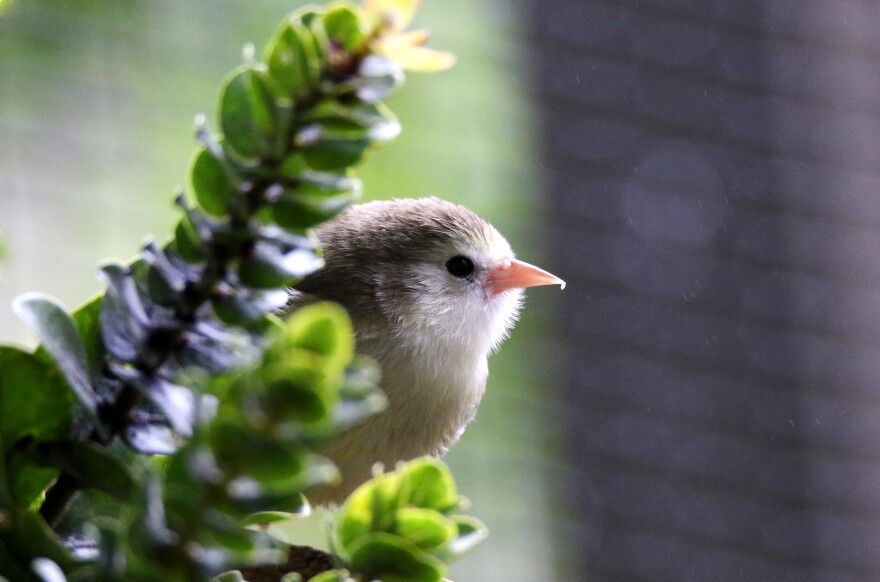Field researchers on Kauaʻi are trapping mosquitoes to prevent native birds from catching avian malaria — and possibly face extinction.
The Kauaʻi Forest Bird Recovery Project sets two types of traps to collect female mosquitoes. Male mosquitoes do not feed on blood.
Three species of Kauaʻi honeycreepers (ʻakikiki, ʻakekeʻe, kiwikiu) could face extinction in the wild within the next five years if the mosquito population is not controlled.
"So my main objectives are monitoring the abundance and distribution of the Culex mosquito, so the vector for avian malaria," said Allie Cabrera, a field associate with the project.
"What I do is I set up a bunch of traps, and I am catching mosquitoes at different points in their lifecycle. One of our traps is designed to attract females when they're looking for a blood meal. And then the other one is designed to attract them when they're looking for a place to lay their eggs," Cabrera said..
The U.S. Fish and Wildlife Service declared eight species of Native Hawaiian birds extinct last year due to avian malaria.




